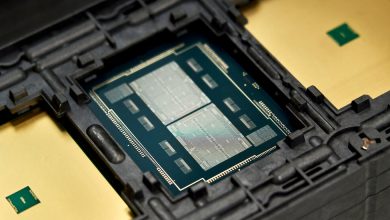Musk Is Already Shaking Up Twitter


Not everyone is smiling.Credit…Justin Lane/EPA, via Shutterstock
Musk vs. the company he’s buying
Elon Musk doesn’t own Twitter yet, but he’s already making his presence felt there. Musk took aim at Twitter employees and others this week in a round of tweets that raised new concerns about the company’s future under his freewheeling approach to content moderation. (He also said — with tongue presumably in cheek — that he would buy Coca-Cola next, “to put the cocaine back in.”)
Musk criticized a longtime Twitter executive who has shaped its content policies. He tweeted that a past moderation decision by Vijaya Gadde, Twitter’s top lawyer and safety expert, was “obviously incredibly inappropriate.” He later posted a meme mocking Gadde. Almost immediately, some people began tweeting abusive, racist and sexist attacks at her.
“Let’s make Twitter maximum fun!” Musk also tweeted. But the company’s current and former leaders did not appear to share that sentiment. Here is how some of them reacted to his criticisms:
-
“Bullying is not leadership,” tweeted Dick Costolo, who was Twitter’s C.E.O. from 2010 to 2015. He also responded to the meme Musk posted, writing: “what’s going on? You’re making an executive at the company you just bought the target of harassment and threats.”
-
Twitter’s C.E.O., Parag Agrawal, offered a muted defense of his staff. He tweeted that he was “proud” of employees who were working to improve Twitter “despite the noise.” In private, Twitter employees grumbled that he wasn’t outspoken enough in defending them.
-
Jack Dorsey was silent. He stepped down as Twitter’s C.E.O. last year but remains a member of the board.
Could Musk back out of the deal? Some investors are still betting on it, with Twitter’s stock trading below Musk’s offer price, signaling skepticism about the deal. And Tesla’s stock has fallen by around a fifth since Musk first revealed his stake in Twitter, reflecting worries that a distracted C.E.O. could be bad for the electric carmaker, as well as concerns about his use of Tesla shares as collateral for bank loans. Musk’s free-speech policies may also cause trouble with European regulators and Chinese censors. And there are questions about the financial viability of the deal: Twitter would take on some $13 billion in debt as part of Musk’s buyout, versus about $5 billion on its balance sheet now, and its earnings are modest relative to that much bigger interest bill. (The company reports its first-quarter earnings later this morning.)
Musk is stuck with another Twitter-related challenge. Even if he owns Twitter, his use of it will be constrained by a 2018 agreement with the S.E.C. Yesterday, a federal judge in New York denied Musk’s request to end the settlement, which requires him to run his social media posts about Tesla by a company lawyer and bars him from discussing the S.E.C. case. Musk has said that he accepted the agreement only because the litigation would have put too much financial pressure on Tesla. He has also argued that the agreement impeded his free speech rights and was being used by the S.E.C. to harass him. “None of the arguments hold water,” the court concluded.
HERE’S WHAT’S HAPPENING
First quarter G.D.P. data could show that the U.S. economic recovery is on track. Consumer spending and business investment are expected to show solid gains, even though Wall Street forecasters expect that the G.D.P., adjusted for inflation, hardly grew. The report will be published at 8:30 a.m. Eastern — follow The New York Times’s live briefing for updates.
Some of Europe’s largest energy companies will pay for Russian gas in rubles. Critics say their willingness to go along with the Kremlin’s terms will undercut E.U. sanctions and prop up the Russian economy with billions in cash.
Meta reports a 21 percent drop in profits. It was the company’s second consecutive quarterly decline, the first time that has happened in over a decade. But investors were heartened by higher-than-expected user growth, pushing its stock up sharply after hours. Amazon and Apple earnings will be released today.
Boeing says an Air Force One deal is expected to cost it more than $1 billion. Dave Calhoun, the C.E.O., said the company faced “a very unique set of risks that Boeing probably shouldn’t have taken” during the negotiations with President Donald Trump over two new planes.
A Deutsche Bank whistle-blower is found dead. The body of Val Broeksmit, 46, was found at a high school in L.A. this week, and the police said they do not suspect foul play. Broeksmit, the son of a Deutsche Bank executive, handed over confidential bank documents to government officials after his father’s suicide.
Fraud charges for Bill Hwang of Archegos
Bill Hwang, whose $10 billion investment firm Archegos collapsed last year, roiling markets and costing banks billions, was arrested yesterday. Federal prosecutors in Manhattan said Hwang had engaged in a fraud that was “historic in scope,” and they charged him and his top lieutenant with racketeering conspiracy, securities fraud and wire fraud. It is one of the highest-profile Wall Street prosecutions in years.
Hwang’s losses were most likely the result of a mixture of bad behavior and lax regulations. His derivatives trading strategy hugely inflated his firm’s hidden positions and gave it outsize power to move stock prices. Much of it was legal, as long as the intent of those trades was not to do something illegal, like manipulate the market. Lawrence Lustberg, a lawyer for Hwang, told The Times that his client was “entirely innocent of any wrongdoing.” But it’s clear that the poorly drawn lines of what is allowed and tolerated on Wall Street enabled Hwang and others to benefit for years at the expense of other investors — and the market as a whole.
The collapse has put a spotlight on so-called family offices. Family offices like Archegos can trade like hedge funds but avoid much of the oversight of those funds. In December, the S.E.C. proposed new disclosure requirements for holders of return swaps, the types of derivatives that Hwang used to inflate his fund’s positions and potentially move markets.
Big banks lent Hwang billions to trade despite obvious red flags. Before his current legal troubles, Hwang paid $44 million to settle a 2012 charge of insider trading brought by the S.E.C. So while a number of large banks, including Credit Suisse, Goldman Sachs and Morgan Stanley, were potentially deceived by Hwang about the size of his overall bets, they were more than willing to work with an investor who had previously been charged by the S.E.C. — which also brought a case against Hwang yesterday tied to the latest charges.
“I think a union was really kind of my only option to make this a viable choice for myself and other people.”
— Tyler Mulholland, who helped lead the campaign to unionize a Manhattan store of the outdoor equipment retailer REI. Mulholland, 32, is one of many young college-educated workers with nonprofessional jobs helping to propel their workplaces to unionize.
How Elon Musk Bought Twitter
A blockbuster deal. Elon Musk, the world’s wealthiest man, capped what seemed an improbable attempt by the famously mercurial billionaire to buy Twitter for roughly $44 billion. Here’s how the deal unfolded:
The initial offer. Mr. Musk made an unsolicited bid worth more than $40 billion for the influential social network, saying that he wanted to make Twitter a private company and that he wanted people to be able to speak more freely on the service.
The response. Twitter’s board countered Mr. Musk’s offer with a defense mechanism known as a “poison pill.” This well-worn corporate tactic makes a company less palatable to a potential acquirer by making it more expensive for them to buy shares above a certain threshold.
Securing financing. Though his original offer had scant details and was received skeptically by Wall Street, Mr. Musk moved swiftly to secure commitments worth $46.5 billion to finance his bid, putting pressure on Twitter’s board to take his advances seriously.
Striking a deal. With the financing in place, Twitter’s board met with Mr. Musk to discuss his offer. The two sides soon reached a deal, with the social media company agreeing to sell itself for $54.20 a share.
What’s next? Shareholders will vote on the offer, which will also be reviewed by regulators. The deal is expected to take three to six months to close. In the meantime, scrutiny is likely to be intense and several questions remain about Mr. Musk’s plans for the company.
Russian billionaire pledges $100 million for Ukrainians
This morning, a foundation started by the Russian-born tech billionaire Yuri Milner and his wife, Julia Milner, will announce a pledge of $100 million toward humanitarian aid for refugees from Ukraine. The effort, Tech for Refugees, will also be supported by the nonprofit arms of Airbnb and the logistics company Flexport.
The nine-figure donation is a strong rebuke of Russia’s war. Last month, the Milners’ Breakthrough Prize Foundation, which awards money to scientists and is the source of the $100 million donation, released a statement condemning Russia’s invasion of Ukraine, as did DST Global, his investment firm. “We have been devastated by the heartbreaking suffering of the Ukrainian people,” the Milners say in today’s announcement. “We believe that this initiative, in partnership with some of the world’s most creative technology companies and organizations, can provide practical assistance for people living in turmoil outside their homeland.”
The donation is notable for its size, but also for its source. Milner made most of his fortune by funding U.S. tech start-ups, including early investments in Facebook and Twitter, and has made a mansion in Los Altos Hills, Calif., his primary residence for over a decade. His early investment funds were linked to the Kremlin, but he has sought to distance himself from Russia and says he stopped taking money from Russian investors many years ago. He appeared on a rundown of Russian oligarchs that the U.S. Treasury released in 2018, but he doesn’t appear on any sanctions lists now.
THE SPEED READ
Deals
-
An investment platform backed by James Murdoch and a former Disney executive has raised $1.8 billion to build a streaming giant in India. (Hollywood Reporter)
-
The private equity firm Apollo Global Management plans to make a joint bid for the British pharmacy chain Boots. (Reuters)
-
Comcast and Charter Communications are teaming up to rival Roku and Amazon with streaming devices. (NYT)
Russia-Ukraine War
-
A new study by Microsoft suggests that many of Russia’s cyberattacks on Ukraine have been timed to coincide with missile strikes. (NYT)
-
“Ukraine Becomes a Wake-Up Call in Faraway Japan” (Bloomberg Opinion)
Policy
-
The U.S. and more than 55 other countries pledged to reinforce democracy by agreeing not to shut down internet access or illegally spy on citizens. (NYT)
-
A congressional report raises new questions about a pandemic relief loan given to a troubled trucking company with close ties to Trump. (NYT)
-
The Oklahoma Senate passed a bill that would ban the state from entering contracts with companies that have restrictive gun policies. (Bloomberg)
-
Half of Apple’s biggest suppliers operate in and around Shanghai, where Covid lockdowns are disrupting business. (FT)
Best of the rest
-
“Boeing Looked for Flaws in Its Dreamliner and Couldn’t Stop Finding Them” (WSJ)
-
PayPal is closing its San Francisco office, giving employees the option to work virtually or from its San Jose, Calif., headquarters. (TechCrunch)
-
The ESPN anchor Sage Steele sued the network, claiming the company breached her contract and violated her free-speech rights. (WSJ)
-
Glitchy and underwhelming: A Times reporter reviews Trump’s Truth Social app. (NYT)
-
A French hit on Netflix, “Call My Agent!” changes its language and streaming service. (NYT)
We’d like your feedback! Please email thoughts and suggestions to [email protected].





